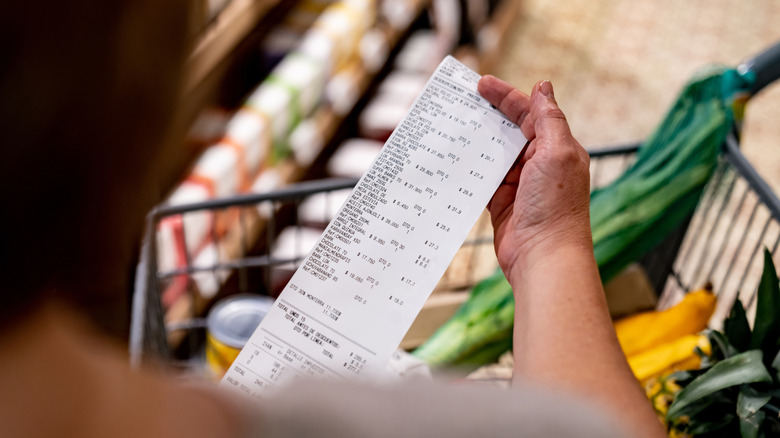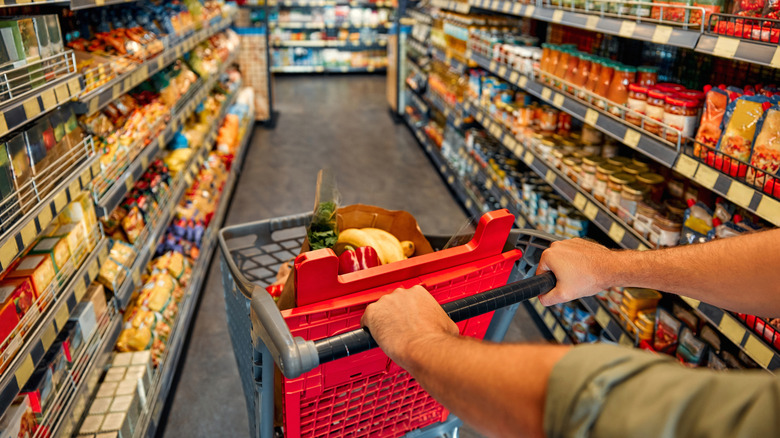How President Trump's Tariffs On Canada Could Impact Your Grocery Bill
As President Donald Trump imposes his promised tariffs on neighboring nations Canada and Mexico, U.S. consumers are growing concerned about price increases in an already strained economic climate. In the wake of Trump's executive order imposing a 25% tariff on Canadian imports, Canada has responded with its own retaliatory 25% tariff on numerous U.S. goods, set to go into effect on February 4, 2025. This has many wondering: What will be the bottom line for American households, and how will Canada's newly imposed levies impact U.S. grocery bills in the coming months?
As American companies absorb the effects of the tariffs, supermarkets will feel the pinch of rising costs on imported foods — costs that will likely be passed on to consumers. American households can expect price increases on both products imported from Canada and U.S.-made goods affected by Canada's retaliatory tariffs.
Popular Canadian-sourced goods like maple syrup are an obvious target for inflated price tags on U.S. store shelves. While various U.S. states produce maple syrup in abundance, Canada remains the world's largest producer, shipping 62.1% of its exported maple syrup to the United States in 2023 (per the Government of Canada).
The top agricultural imports from Canada to the U.S. in 2022 were biscuits and wafers, totaling $4.2 billion in products (per USDA). Other common food imports from Canada include rapeseed oil, beef, cocoa products, pork, and frozen potatoes. Since Trump's order affects all Canadian imports, any of these food items originating from Canada will be subject to the 25% tariff, making price increases at the U.S. consumer level an impending reality.
Potential price increases on US-made food products
On the flipside, with Canada now imposing its own 25% tariff on incoming U.S. goods, a long list of American-made food products will be impacted. Canadian Prime Minister Justin Trudeau has also encouraged Canadian consumers to boycott U.S. products and buy Canadian instead. Both the tariffs and potential boycotts could spell financial trouble for American companies. As U.S. manufacturers absorb these financial blows, rising costs could become a reality for American consumers purchasing domestically produced food items as well.
Canada's tariffs will affect a variety of U.S.-made food products, including meat and dairy, fruits and vegetables, grains, coffee and tea, and spices. Alcoholic beverages like beer and wine will also be impacted. So, even if a product is made in the United States, consumers could soon pay more at the register as U.S. producers adjust to the financial strain of tariffs and boycotts.
As U.S. consumers seek ways to tighten their belts against rising food costs, shopping at grocery chains that employ cost-saving practices may be one way to save money. Simple tactics — like learning to spot misleading sale gimmicks and opting for a basket instead of a cart — can also help buyers cut costs by preventing impulse purchases and keeping them focused on their shopping lists.


